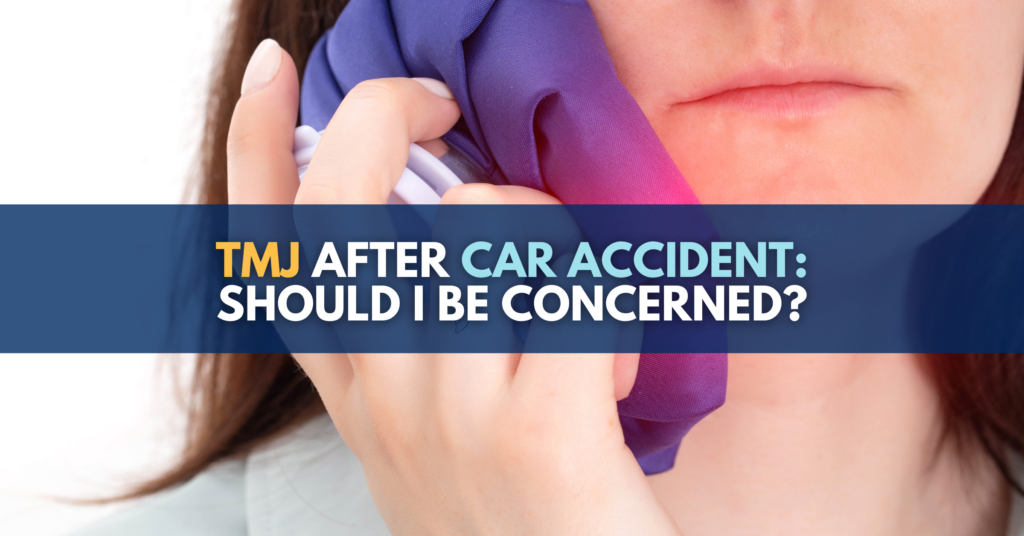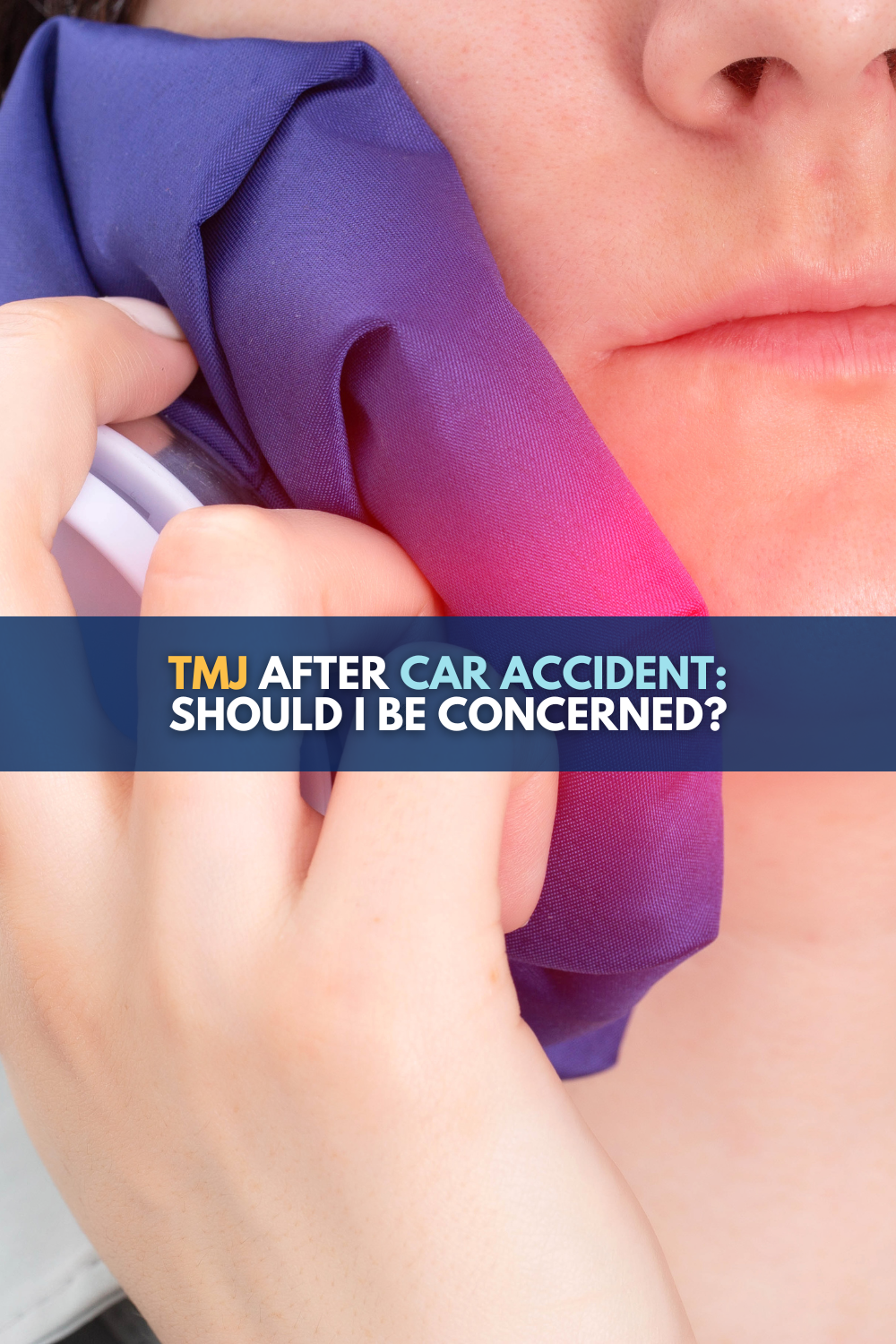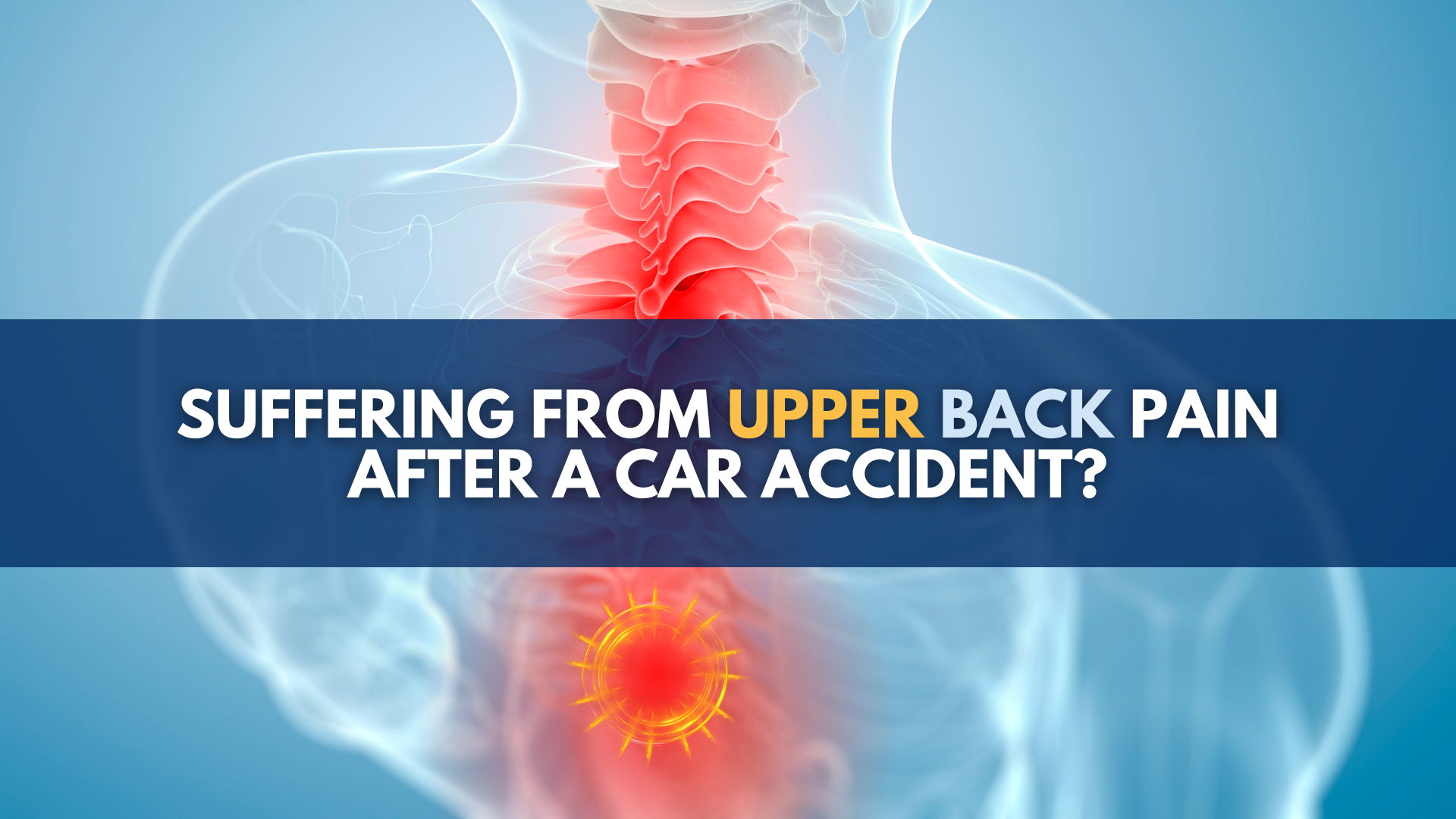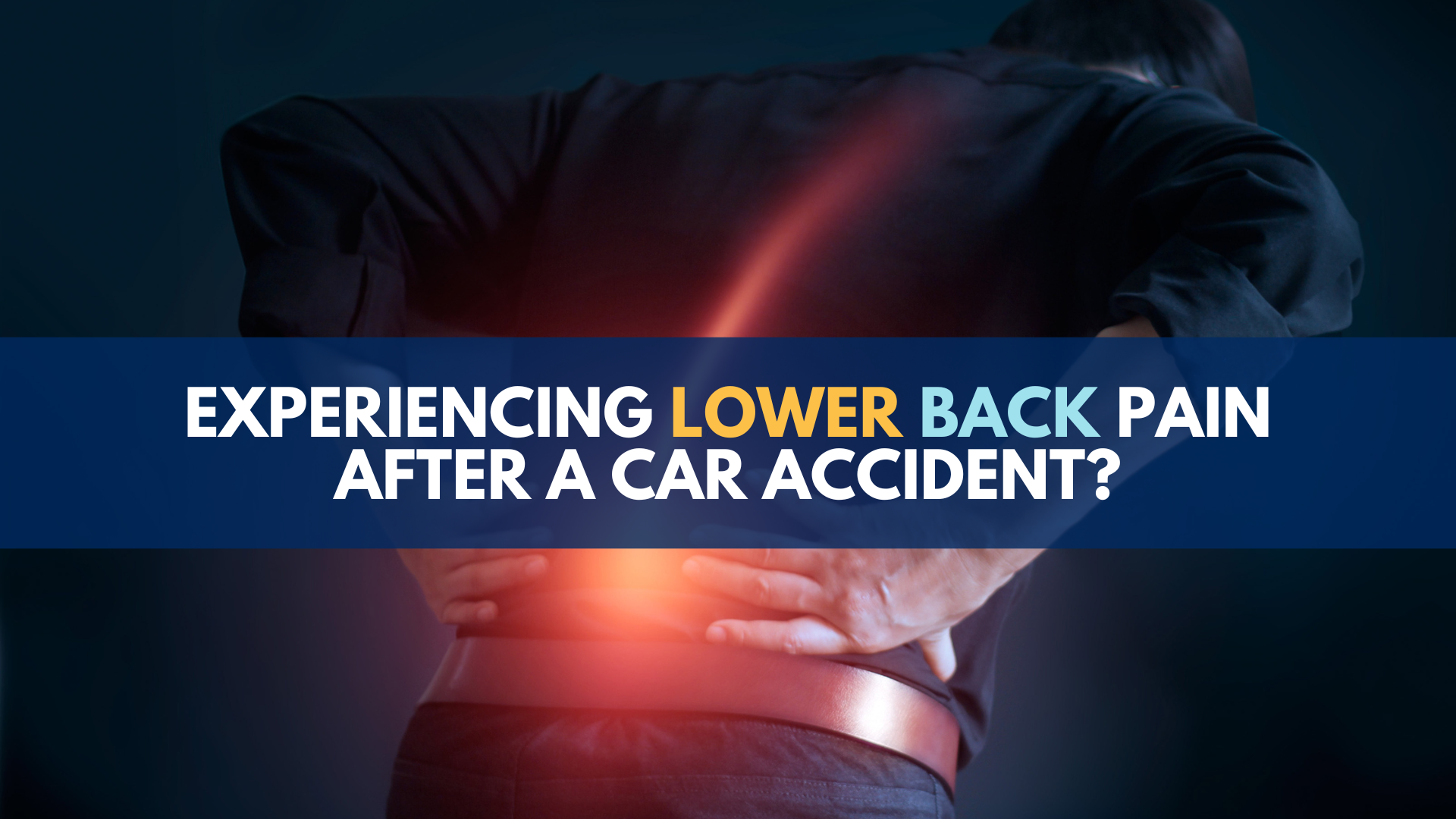
If you are suffering from TMJ after a car accident it is critical that you seek prompt medical attention. This is an injury to the temporomandibular joint which connects the lower jawbone to the skull causing pain, headaches and functional limitations like the ability to open and close one’s mouth, chew and yawn.
Examples of TMJ after a car accident
TMJ after a car accident may take several forms:
- Myofascial Pain – This refers to pain and discomfort in the muscles that control a person’s jaw functions.
- Internal Derangement of the Joint – This occurs when the disc that serves as a cushion between the lower jaw and skull is displaced.
- Inflammatory Joint Disease – When the temporomandibular joint gets inflamed due to the trauma of a crash, it can cause arthritis or synovitis.
What to do for TMJ after a car accident
If you have suffered TMJ after a car accident, follow these steps:
- Get examined immediately: Time may be of the essence. When it comes to properly treating TMJ after a car accident, the sooner a person gets the proper diagnostic tests and medical treatment, the better the chances they have of making a good functional recovery and preventing a potentially more serious and permanent injury. As an injury lawyer, I always advise people that the sooner they can get the necessary and appropriate medical care, the sooner they can get back on the road to good health and a full recovery. This type of injury can often be treated successfully early on with a bite splint, but without early treatment the condition can often get worse.
- Get medical treatment and get a referral for the appropriate diagnostic imaging to detect and diagnose if you have suffered from this type of injury. A doctor or dentist or ear, nose and throat specialist cannot treat you until he or she knows what is causing your symptoms, and the appropriate diagnostic testing will enable your doctor or dentist or ENT to prescribe the best course of treatment for you and make the appropriate referrals for you.
- Early documentation of TMJ after a car accident always makes it easier to avoid future bill payment problems with your own insurance company. Early medical documentation, such as in an emergency room or as soon as possible with your family doctor or dentist, will prove to a health insurance company or a No-Fault insurance company that the motor vehicle crash was the cause of your temporomandibular joint injury. If your injury does become more serious, and therefore more expensive to treat, you’ve documented the early symptoms and will be able to avoid many of the problems that can arise if a claims adjuster denies a causal relationship to your automobile crash and refuses to pay for medical treatment. Early treatment and medical documentation create a clear temporal relationship that makes it more likely for your insurance company to pay for your medical care.
- Showing a clear temporal relationship between the collision and the documentation of treatment for a condition or injury also makes it easier for your attorney to obtain a full and fair legal settlement for your temporomandibular joint injury. Delays in treatment and long gaps in medical documentation will hurt your ability to get better faster and to make a good recovery for your injury, but it also often makes it harder for your attorney to get a reluctant insurance company adjuster to pay a full and fair legal settlement after your crash for your injury and your pain and suffering.
- Don’t try to “tough it out”: A temporomandibular joint injury can be very serious. It can cause permanent and disabling pain and chronic debilitating headaches if the condition is not treated and if you don’t seek medical treatment right away. As a personal injury attorney, I’ve seen so many instances where this type of injury was treated early on and the pain and impairments quickly resolved within a few months. But I’ve also seen good people who felt like they didn’t want to “complain,” have to deal with temporomandibular joint issues for years because they did not seek early (and very inexpensive) medical treatment.
- Talk to an attorney who is experienced at helping people injured in automobile crashes. Most experienced lawyers have helped people suffering from TMJ after a car accident. The initial call is always free so at the very least you will be informed as to what your insurance company is responsible to pay and what medical help and wage loss you are entitled to. An attorney can also help you review your medical records as well as the treatment and care you’re receiving to make sure bills are getting paid and to help you assess what your case might be worth if your pain and disability was caused by another driver’s negligence or carelessness.
- Tell your auto insurance company about your TMJ after a car accident. If you live in Michigan, make sure to include this in your application for No-Fault benefits, which is also referred to as your “written notice of injury” – which must be given to your No-Fault auto insurance company “within 1 year after the accident.” (MCL 500.3145(1) and (4))
- Do not sign any settlements, releases, or waivers related to your automobile crash: Until you have talked with an experienced attorney who is looking out for your interests, do not sign any settlements, releases, or waivers that are presented to you by your auto insurance company, the at-fault driver’s auto insurer or any other insurance companies or persons.
How to claim for TMJ after a car accident
In Michigan, you start your claim for TMJ after a car accident by filing an application for No-Fault benefits with the responsible auto insurance company, according to the No-Fault law’s “priority” rules. The No-Fault insurer will pay for your medical bills and your lost wages if you cannot return to work.
Can you sue for TMJ after a car accident?
Yes. If your auto insurance company refuses to pay for – or cuts-off – No-Fault benefits related to TMJ after a car accident, then you can sue for unpaid, overdue medical bills, attendant care, medical mileage, replacement services and lost wages because your injury has prevented you from returning to work.
You can also sue the at-fault driver for pain and suffering compensation as a result of your collision-related injuries, but you will first have to show that the other driver was at-fault for causing the crash and that your mental trauma constitutes a “serious impairment of body function” under our auto law.
Additionally, you may be able to sue the at-fault driver for other economic damages, such as excess and future medical bills and lost wages.
Symptoms
If you are experiencing any of the following symptoms after an automobile crash, then you should seek medical attention to determine whether you are suffering from a temporomandibular joint injury:
- Pain or tenderness in the jaw
- Aching pain in and around one’s ear
- Difficulty or pain with chewing
- Difficulty speaking and enunciating
- Facial pain
- The temporomandibular joint locks (or locking of the jaw), thus making it difficult to open or close one’s mouth
- Limitation of movement
- Clicking when opening or closing one’s mouth
- An uneven bite
- Earaches
- Headaches
- Difficulty with concentrating
Testing and diagnosis
When you have symptoms consistent with TMJ after a car accident, your doctor or dentist or ear, nose and throat specialist will conduct a physical examination to check for limited range of motion, joint pain and misalignment.
Your medical care provider may also use one of the following forms of diagnostic imaging tests to make his or her diagnosis and recommend a course of treatment:
- MRIs
- CT scans
- X-rays
Treatment
Your doctor, dentist and/or ear, nose and throat specialist may recommend one or more of the following treatment options for your temporomandibular joint injury: Medications such as painkillers, antidepressants, muscle relaxants and steroid injections
- Cognitive behavioral therapy
- Stress management techniques
- Mouth or bite guards which also referred to as splints or appliances
- Orthodontics (which is corrective dental treatment)
- Repair or replacement surgery
- Speech therapy (with a speech pathologist)
Suffering from TMJ after a car accident? Call Michigan Auto Law now!
If you are suffering from TMJ after a car accident, call now (855) 781-7747 for a free consultation with one of our experienced car accident lawyers. There is no cost or obligation. You can also visit our contact page or use the chat feature on our website.
Michigan Auto Law is Michigan’s largest and most successful law firm that specializes exclusively in helping people who have been injured in auto accidents.
Our secret? Our car accident lawyers deliberately handle fewer cases than other personal injury law firms. This allows us to focus more time and attention on our cases.
Unlike other law firms, our attorneys are never too busy to promptly return phone calls and answer questions.
We have more than 2,000 5-Star Reviews that reflect this care and attention to detail.
More importantly, this client-focused approach leads to better and faster settlements for our clients. Michigan Auto Law has recovered more million-dollar settlements and trial verdicts for motor vehicle accidents than any other lawyer or law firm in Michigan. We’ve also recovered the highest ever reported truck accident and car accident settlement in the state.
Call now so we can start making a real difference for you.



